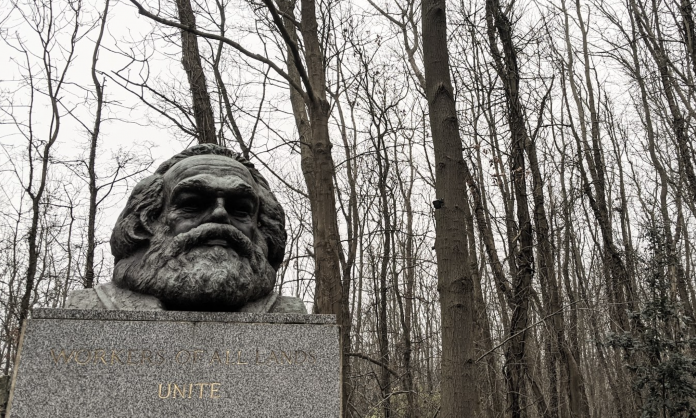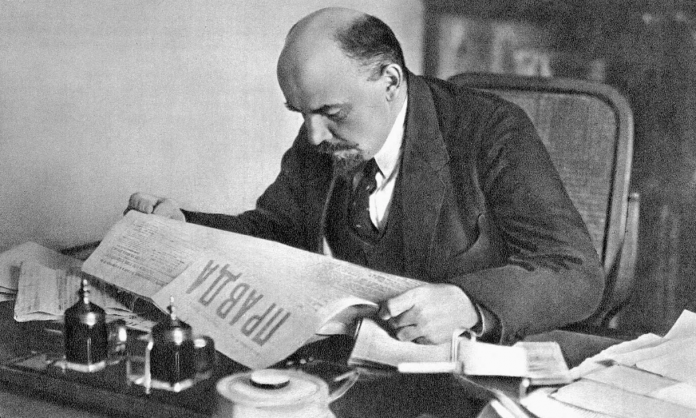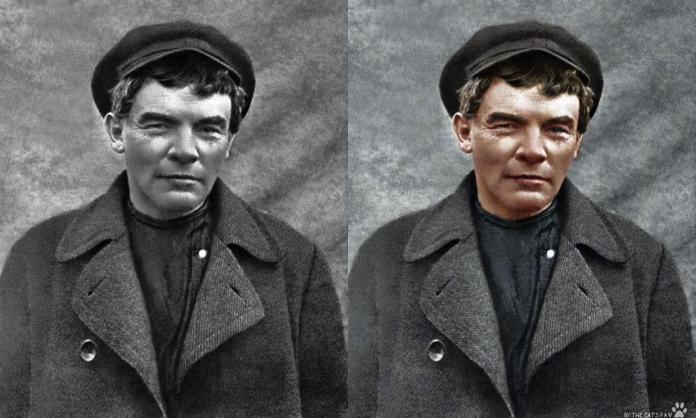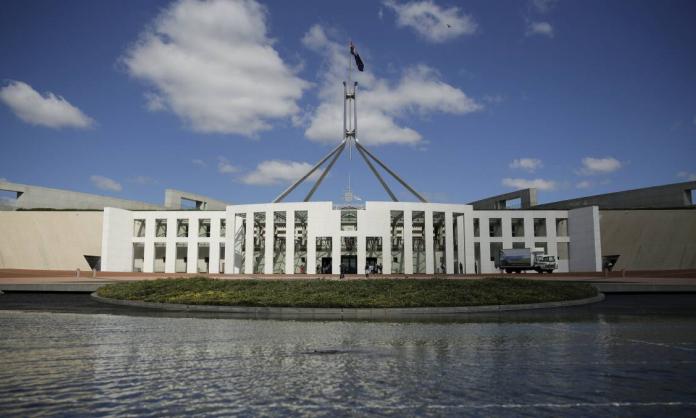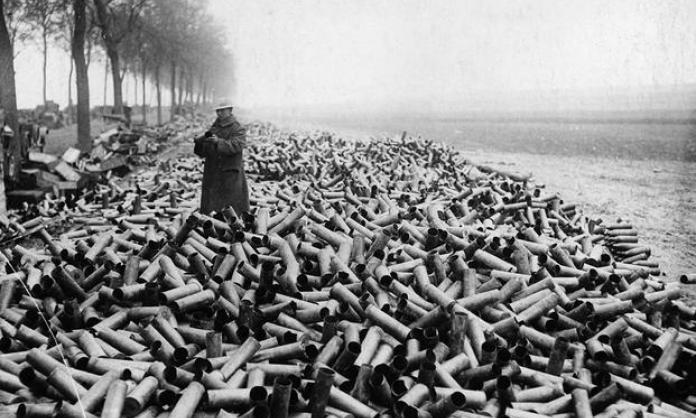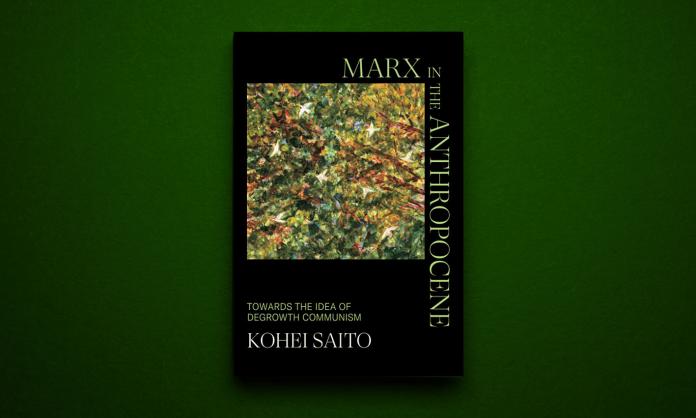Karl Marx developed his theory of revolution by arguing against would-be progressives who looked to the capitalist state as a force for progress. Those arguments are today as relevant as ever. From the electoral politics of Bernie Sanders to the bankrupt worship of China or other self-described “socialist” countries, the idea that bureaucratic states should be at the centre of the strategy for human liberation remains in vogue.
There is nothing new in thinking that the state represents a higher good. In Marx’s day too, this was the dominant trend among socialists. This was more understandable in the early days of capitalism, when the French Revolution’s promises of liberty, fraternity and equality were still recent innovations. Why do these ideas resonate today?
Marx began his career as a strident advocate for democracy and political emancipation. He hoped to reform the state and expose its crimes. His radical breakthrough, which would differentiate him from his contemporaries and predecessors, came when he concluded that radical politics must be liberated from the logic of the bureaucratic state.
Three key arguments emerge from Marx’s writings. The first is that state-focused politics goes hand in hand with economic alienation. The second is that the state is an instrument of class rule, not a neutral instrument. The third is that socialist strategy must aim for working-class power. Rejection of the capitalist state requires a strategy to build the kind of power that can defeat it. Radical, true democracy has to overcome the limitations of capitalist institutions. It depends on the working class developing our own forms of power.
The capitalist state is different from what went before. Under feudalism, politics and economic life were directly combined. Those with wealth also held political power: the lords, kings and churches, who owned land and dominated their labourers. The masses weren’t expected to participate or have a say.
Under capitalism, there is a division of labour among our rulers. Economic life—“civil society”—separates from the state, which becomes the focus of politics. The capitalists compete with each other in the marketplace, each focusing on their own interests. The state takes shape separately, ensuring that capitalist social relations remain stable overall.
Marx saw the early development of a political state as a step forward. Political emancipation, the right to vote and other formal equalities legitimated the idea that we all have a stake in and should collectively decide the affairs of society as a whole. But this form of politics is still alienated from social life. We can’t collectively decide the things that really matter: who owns what, how we produce wealth, where things go.
This “political state” developed as the capitalist mode of production was perfected, with its principles of private property, exploitation and the accumulation of profit. State institutions presume and preserve these relations. The state is structurally tied to the interests of the ruling class and can’t be used against them.
Marx pointed out that it’s precisely because the modern state is “blind” to social existence that it reinforces it and that formal political equality obscures real inequality. When it treats its citizens equally, “the state abolishes, in its own way, distinctions of birth, social rank, education, occupation”. But by acting as if those differentiations don’t exist, it “allows private property, education, occupation to act in their way ... Far from abolishing these real distinctions, the state only exists on the presupposition of their existence.” A capitalist state granting equal rights to its citizens in some ways only ratifies and legitimises a thoroughly unequal, oppressive society.
This “blindness” to social life makes the state appear universal and impartial. The interests of the capitalist class come to seem like the interests of society as a whole, with an impartial bureaucracy managing the affairs of the nation. In this way, Marx pointed out, the bureaucracy secures the rule of the bourgeoisie.
In a way, the capitalist state steps in to play the role previously assigned to the medieval church. Religion is secularised. The “public good” takes the place of “God’s will” as the catchcry that justifies an unequal status quo. State officials—bureaucrats, politicians and legislators—become like feudal priests: preaching the virtues of the public good while working to preserve their privileged role stabilising a grotesquely unjust society.
Why would we settle for such impoverished democracy? Deference to the state is the product of the distorting effects of commodity production, the basic logic of capitalism. In our working lives, we have no control over our labour or the things we produce. The majority of our lives is dictated to us by a parasitic minority of bosses who control the production process and gear it to selling goods on the market for profit. Marx referred to the resulting powerlessness and atomisation as alienation. We live our lives trampled by anarchic and destructive economic processes.
In the economic world, we’re competing with one another. Everything is for sale. Human solidarity is undermined. We turn to the state to guarantee universal liberty. It’s where we feel that we have some agency, when every few years we are allowed to vote. In the economy, we are unfree, life is unequal, and society is chaotically organised by the drive for profits. As equal citizens under the state, we can imagine that we are living a collective life based on the principle of equality and conscious decision making.
Marx describes this splitting of human consciousness in On the Jewish Question, an early text in which he defends the struggle for equal rights, while also highlighting its limitations: “Where the political state has attained its true development, man—not only in thought, in consciousness, but in reality, in life—leads a twofold life, a heavenly and an earthly life: life in the political community, in which he considers himself a communal being, and life in civil society, in which he acts as a private individual, regards other men as a means, degrades himself into a means, and becomes the plaything of alien powers."
This is why most people, whether they regard the state as fundamentally good or bad, deem it necessary. Deference to the state, whether it be enthusiastic or begrudging, is the consequence of the splitting of the social from the political as well as alienation. We aren’t in control of society, so it makes sense that a bureaucracy should take over.
The state bureaucracy exists to manage and stabilise contradictions of a civil society that is ruled by the dictates of capital accumulation. But the state must present itself as the embodiment of the people’s will, the incarnation of universal, collective life in a world torn apart by competition and inequality.
The good news is, this line doesn’t stick. Because the state is intimately connected to civil society, this mirage is constantly vanishing. On the one hand, the institutions of the state do introduce a degree of rationality and stability into the system, which would not be there if the capitalists were left to their own devices. On the other hand, the task of managing and stabilising the contradictions of civil society is an incredibly difficult one, given the limited power of the state compared to the economic forces underlying it.
The contradiction, Marx pointed out, expresses itself in a desire to control and suppress all the qualitative, variable, unpredictable aspects of existence. The state develops a drive towards enforcing and stabilising the status quo. This can mean that in periods of crisis, or when ordinary people come into conflict with the state, there can be a pressure towards authoritarianism, even in democratic states. Such periods create the possibility that the state is exposed as biased, as unjust, as an instrument of class rule.
The contradictions of the bourgeois state are fleshed out in Marx’s writings on the French revolutions of 1789 and 1848. These bourgeois revolutions began with appeals to liberty, fraternity and equality. They inspired loyalty and courage in the masses who battled to overthrow the old regimes.
But in each case, these ideals turned into authoritarianism, as the state found itself unable to contain the contradictions of the society created by the revolution. In an early attempt at revolution, the bourgeoisie of 1789 called the masses to arms. In 1851, fearful of a revolutionary working class, they handed power to a dictator to stabilise the situation.
Despite the fact that it seemed as though the bourgeoisie had “lost” when they handed over power to a dictator, Marx insisted that these developments epitomised the consolidation of the capitalist order.
Marx regarded the tragedy of French history between 1789 and 1848 as evidence of the inability of the bourgeoisie to bring about the promised liberty, fraternity and equality. Perfecting and strengthening their state meant perfecting and strengthening the unequal and oppressive society that underlay the existence of the state itself. Marx’s search for a new agent of human emancipation began with this disappointment.
As an active participant and keen observer of workers’ struggle in France, where he lived for a time as an exile, Marx developed a theory of the self-emancipation of the working class.
Marx was not the first socialist to talk about the oppression of the working class. This was a pretty obvious and widely accepted point. Marx’s significance lies in the fact that he recognised the proletariat as a potential political subject that could transform society as a whole. The working class, he argued, is the true universal class: it can’t liberate itself without abolishing all the oppressive conditions of modern society. Working-class liberation necessitates the abolition of the source of all of society’s horrors: capitalist exploitation.
The working class is, in Marx’s words, “a class with radical chains ... which cannot emancipate itself without emancipating itself from all other spheres of society and thereby emancipating all other spheres of society”.
Marx argued for class struggle and the necessity of the self-emancipation of the working class from early on. It was not until the late nineteenth century, however, that Marx articulated concretely how this flowed through to the way that socialists should relate to the capitalist state. In his late work, The Civil War in France, Marx reckons with the Paris Commune—a brief period of six weeks in 1871, when the workers of Paris took over the city before being crushed by the army. Through revolutionary struggle, workers had created their own revolutionary-democratic institutions, but had not broken down and destroyed the pre-existing state.
Marx had ceaseless praise for the initiative, creativity and bravery of the “communards”. He concluded his address to the International Workingmen’s Association paying tribute to “working, thinking, fighting, bleeding Paris—almost forgetful, in its incubation of a new society, of the Cannibals at its gates—radiant in the enthusiasm of its historic initiative!”
Unfortunately, the Commune was defeated, and Marx didn’t shy away from drawing the necessary conclusions. The key lesson he drew was the necessity to smash the state apparatus; that the proletariat “can not simply lay hold of the ready made state machinery”.
The Commune led Marx to conclude, more explicitly than ever before, that the state is not a neutral instrument that could be used to wrest power from the oppressors. It is, in essence, despotic. Marx argued that capitalism could be destroyed only if workers smashed the state and replaced it with institutions of workers’ power, a “dictatorship of the proletariat”.
The dictatorship of the proletariat is probably his most misunderstood and misused concept. It was an argument for democracy, not against it: the dictatorship of the proletariat, the rule of the working class, represents the vast majority holding power over the minority through revolutionary institutions of workers’ power.
With this position, Marx distinguished himself from the two dominant tendencies in the First International: the reformists, grouped around Ferdinand Lassalle, and anarchists such as Bakunin and Proudhon.
These tendencies appeared to be at opposite ends of the political spectrum: one fetishised capturing the state to introduce socialism while the other argued to abolish or ignore it. But Marx’s theory showed that both currents failed to understand how the capitalist state was intimately bound up with capitalist social relations. What the early anarchists and reformists had in common is that they viewed the state as an external authority, not something whose existence and structure emerged from the nature of capitalist class society. They differed only in the degrees of legitimacy they ascribed to it: reformists thought it could be a tool for introducing socialism, while anarchists opposed it.
This error is obvious with regards to the reformist wing. The bureaucratic state is the expression of capitalist rule. It can’t be captured by the class that it exists to oppress. Its very structure disempowers the working class and relies on holding decision making among a minority of society.
The anti-statism of anarchists took various forms. Some argued that all forms of political action were inherently reactionary. In practice this meant abstention or even denunciation of struggles around voting rights, women’s rights and the rights of religious and ethnic minorities.
Max Stirner’s anti-statism amounted to a type of radical individualism. “[T]he state owes its existence only to the contempt which I have for myself”, he wrote. “With the disappearance of this disdain it will totally die out.” The idea is that if people stop believing in the power of the state, it will become powerless. But the strength of the bourgeois state does not rely on active support. The widespread hatred of the police in the US has not made it impossible for them to jail and murder people. And individualism does not weaken the ideological hold of the state; it reinforces it. One of the successes of neoliberalism is to convince us that our agency exists in the realm of the consumer choices we make. This also applies to forms of “communism” based on setting up small-scale communes or squats that don’t challenge the state. As Marx argued, the antidote to the powerlessness we experience as individuals in society is collective struggle, solidarity and class consciousness, not egotism.
For Marx, understanding the intimate relationship between the state and economic life meant rejecting the idea that the state could be captured, while acknowledging that political questions are just as much part of the class struggle as economic ones. But that’s not about creating a perfect democratic capitalist state. It’s about building up working-class confidence, organisation and consciousness, until workers can ultimately smash and destroy the capitalist state completely, replacing it with a new form of political organisation based on the collective power of the exploited.
Understanding that the state’s existence is based in the organisation of economic life meant rejecting the idea that the individual could overcome or defeat it. Understanding the capitalist state as an instrument of class rule meant acknowledging the need for the working class to develop its own instrument of class rule to wield against the capitalist class. That need was proven by the experience of workers’ revolutions throughout the 20th century. Finally and most importantly, seeing the working class as a universal class, a class that can liberate itself only by abolishing the whole system, means that a workers’ state is a new type of state: an “anti-state”. The purpose of a workers’ state is to eliminate class divisions altogether, thereby eliminating the material basis of the state and creating conditions for it to “wither away”.
Marx’s theory of the self-emancipation of the working class created the basis for a totally different conception of radical democracy: one that aims to abolish the material basis of alienated existence, both in its economic form (commodity production and wage labour) and its political form (the bureaucratic state).
The rise of the bourgeoisie required the separation of politics and economics. The rule of the working class means turning our economic power into a political force. Economic, social and political life are merged in working-class struggle. The working class’s institutions of power—workers’ councils built through collective struggles like mass strikes—have shown us a glimpse of what such a radical democracy could look like.
Marx’s critique of capitalist democracy was that it did not go far enough. We need political and economic democracy, which is impossible under capitalism. Marx was a democrat before he was a communist revolutionary, and his unflinching commitment to democracy drove his political development. His polemic against totalising forms of political power embodied in state bureaucracy runs like a red thread throughout Marx’s work, from his early writings on Hegel to the Critique of the Gotha Programme and Capital.
The regimes that call themselves communist today are the complete antithesis of Marxism. They augment the worst aspects of the bourgeois state—its authoritarianism, repression and bureaucracy. There is nothing to defend about these regimes, and their cynical use of Marx to justify their brutality gives the socialist left a special obligation to expose and unmask them.
Marx’s writings on the state offer a powerful critique of the apolitical approach of anarchists, the fetishisation of capitalist democracy by reformists and the Stalinist conflation of bureaucratic authoritarian states with workers’ power. Marx’s vision for socialism was one of human flourishing and freedom. Capitalism erodes our humanity in many ways. The existence of the state is one of them. That’s what makes revolution possible and necessary.




